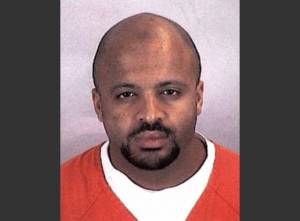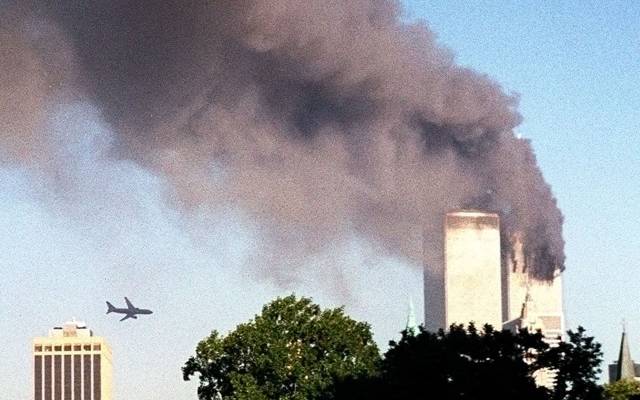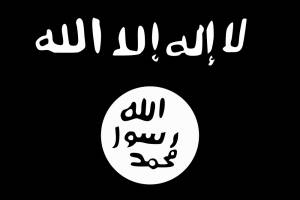
Zacarias Moussaoui. (AP/Sherburne County, Minn., Sheriff’s Office)
Citing the lack of sufficient evidence, a US judge dismissed a lawsuit against Saudi Arabia, which many believe had a significant role in the September 11, 2001 terror attacks.
Saudi Arabia was dismissed Tuesday as a defendant in lawsuits brought by the families of nearly 3,000 victims of the September 11, 2001 terror attacks by a judge who said lawyers had failed to show sufficient evidence linking the country to the attacks.
US District Judge George Daniels said in a written ruling that lawyers for the plaintiffs had failed to show facts sufficient to overcome Saudi Arabia’s sovereign immunity. He also dismissed as a defendant the Saudi High Commission for Relief of Bosnia & Herzegovina on the grounds that the charity is an instrument of Saudi Arabia and thus covered as well by sovereign immunity.
The judge wrote that evidence would have to show that Saudi Arabia or its officials took actions to support the terrorist plot. Fifteen of the 19 hijackers were citizens of Saudi Arabia.
Among evidence rejected by the judge as insufficient were the recent claims of a man who became known as the “20th hijacker,” Zacarias Moussaoui. Moussaoui claimed a Saudi prince helped him financially in 2001 when he was studying at a flight school in Norman, Oklahoma, and also funneled a large amount of money to some of the 19 men who hijacked planes on September 11.
Moussaoui was in custody on September 11 and pleaded guilty in April 2005 to conspiring with the hijackers to kill Americans. He is serving a life sentence at the high security Supermax prison — known as the “Alcatraz of the Rockies.”
The ruling came just over 14 years after Muslim terrorists hijacked planes and flew them into the World Trade Center in New York City, the Pentagon near Washington, DC, and into a field in Pennsylvania after passengers apparently managed to overpower the terrorists.
Saudi Arabia had been reinstated as a defendant in December 2013 by the 2nd US Circuit Court of Appeals in Manhattan. A lower-court judge had previously dismissed the nation as a defendant on sovereign immunity grounds.
The lawsuits were brought in 2002 and afterward against countries, companies and organizations accused of aiding al-Qaida and other terrorist groups. They sought billions of dollars in damages.
In the lawsuits, lawyers argued that the September 11 attacks, which destroyed the World Trade Center and killed several thousand people, had been planned for years by a network of Islamic terrorists with the assistance of banks, governments and individuals.
Lawyers in the Sept. 11 cases have frequently cited the report by the September 11 Commission. Lawyers for the plaintiffs have said the commission supported their argument that Saudi Arabia had long been considered the primary source of al-Qaeda funding, while lawyers for Saudi Arabia have argued that the commission found no evidence that the Saudi government as an institution or senior Saudi officials individually funded al-Qaeda.
Michael Kellogg, one of the lawyers representing Saudi Arabia, declined comment Tuesday.
Sean Carter, one of the lawyers for the victims, said, “Obviously, we respectfully disagree with the court’s ruling.” He promised an appeal.
“Evidence central to these claims continues to be treated as classified. The government’s decision to continue to classify that material certainly factored into this outcome,” he said.
By: AP and United with Israel Staff
Sign the Petition to Unite Against Islamic Terror
Petition to the United States and World Powers:
We urge our leaders to reject all supporters of Islamic Terror. Do NOT join forces with Iran, Hamas and other extremists to fight ISIS. Unite with Your Friends - Not with Your Enemies.

